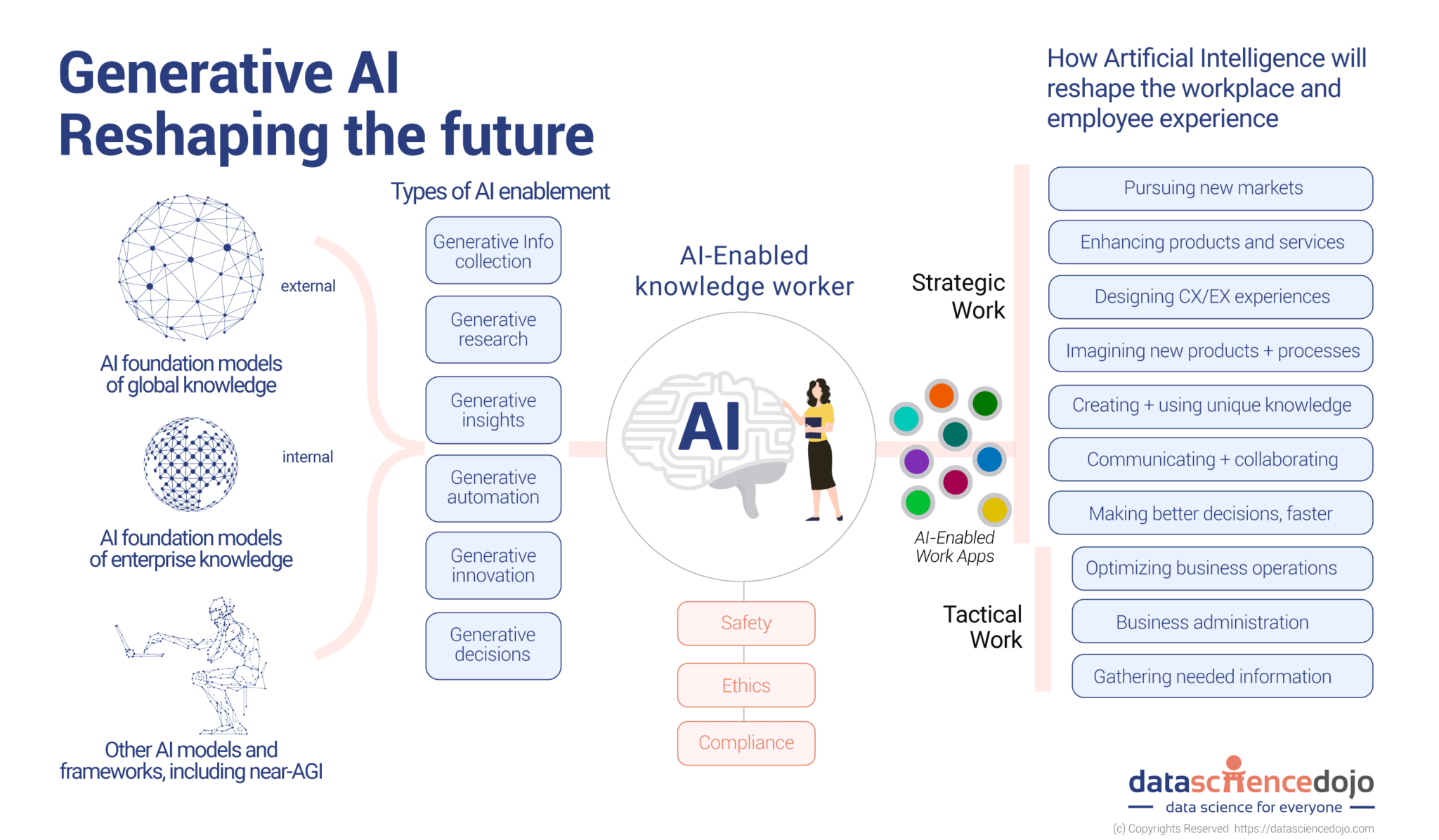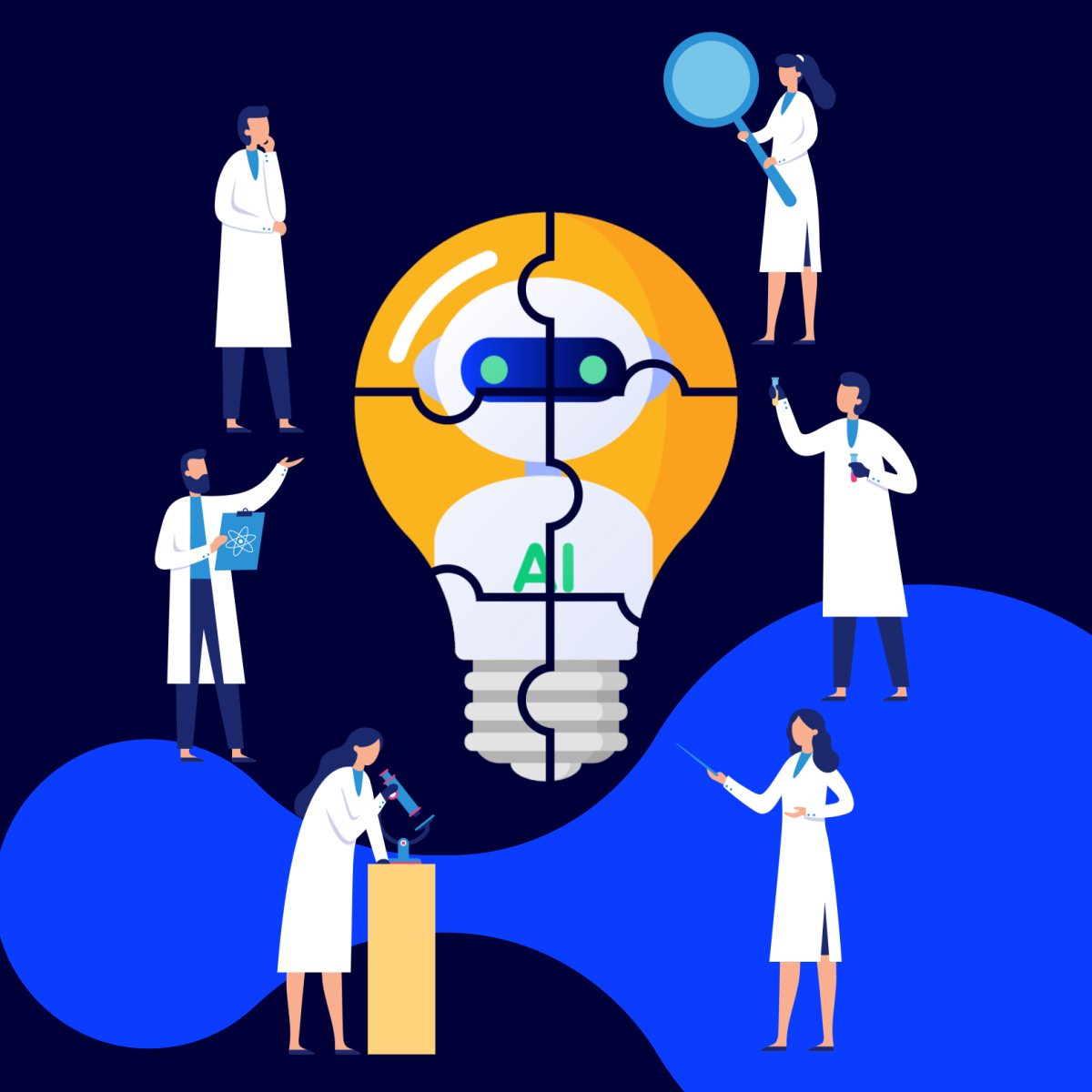
AI: The Future Of Innovation And Efficiency
Editor's Note: "AI: The Future Of Innovation And Efficiency" has published today to give you a general overview of "AI: The Future Of Innovation And Efficiency". This topic is important to read because it provides you with valuable insights that will help you make the right decision.
After doing some analysis, digging information, we put together this AI: The Future Of Innovation And Efficiency guide to help you make the right decision.
| Key differences | Key takeaways |
|---|---|
| AI is the future of innovation and efficiency | AI has the potential to revolutionize the way we live and work |
| AI can be used to automate tasks, improve decision-making, and create new products and services | AI is already being used in a variety of industries, including healthcare, finance, and manufacturing |
| As AI continues to develop, it will have a profound impact on our lives | We need to be prepared for the changes that AI will bring |
Transition to main article topics

DWFI to lead new million USAID Feed the Future Innovation Lab - Source waterforfood.nebraska.edu
FAQ
This FAQ section is provided to address common concerns or misconceptions about AI's role in innovation and efficiency. Please refer to the questions and answers below for further clarification.
Question 1: Will AI replace human workers in the workplace?
Answer: While AI has the potential to automate certain tasks, it is not likely to completely replace human workers. Instead, AI is viewed as a tool that can enhance human capabilities and augment their productivity.
Question 2: Is AI reliable and trustworthy?
Answer: AI algorithms are designed and trained using vast amounts of data. The accuracy and reliability of AI depend on the quality of the data used. It is essential to evaluate AI models thoroughly before deploying them in critical applications.
Question 3: What are the ethical implications of using AI?
Answer: As AI becomes more pervasive, it is crucial to consider its ethical implications. Concerns include bias, privacy, and the potential misuse of AI for malicious purposes. Ethical guidelines and regulations are being developed to ensure responsible AI development and use.
Question 4: What industries are most likely to benefit from AI?
Answer: AI has the potential to transform a wide range of industries. Some of the most likely to benefit include healthcare, finance, transportation, and manufacturing. AI can enhance efficiency, optimize operations, and drive innovation in these sectors.
Question 5: How can individuals prepare for a future where AI is prevalent?
Answer: To succeed in an AI-driven world, individuals need to embrace lifelong learning and develop skills that complement AI capabilities. This includes focusing on critical thinking, creativity, and interpersonal communication.
Question 6: What is the future of AI in terms of innovation and efficiency?
Answer: AI is expected to continue to drive innovation and efficiency in the years to come. Advances in machine learning, natural language processing, and other AI subfields will lead to new applications and solutions that can transform our world.
Summary: AI is a powerful technology with the potential to revolutionize many aspects of our lives. By addressing common concerns and misconceptions, we can embrace AI's transformative power while ensuring responsible and ethical development and use.
Tips
Artificial intelligence (AI) is poised to reshape countless industries, from healthcare and finance to manufacturing and retail. Consider the following tips for leveraging AI's capabilities to unlock innovation and drive a greater degree of efficiency:
Tip 1: Automate Repetitive Tasks
AI excels at performing repetitive and time-consuming tasks with speed, accuracy, and consistency. Free up human employees to focus on more complex and value-added activities by automating tasks such as data entry, scheduling, and customer service inquiries.
Tip 2: Enhance Decision-Making
AI algorithms can analyze vast amounts of data to identify patterns and provide insights. This empowers businesses to make informed decisions based on data-driven intelligence, reducing the risk of human error and bias.
Tip 3: Personalize Customer Experiences
AI enables personalized experiences by tailoring interactions to individual customer preferences. Chatbots, for instance, can provide real-time assistance and product recommendations based on a customer's browsing history and expressed interests.
Tip 4: Optimize Operations
AI can analyze supply chains, inventory levels, and production processes to identify inefficiencies and optimize operations. This leads to improved productivity, reduced costs, and greater agility in responding to market changes.
Tip 5: Foster Innovation
AI serves as a catalyst for innovation by unlocking new possibilities. It can generate ideas, test hypotheses, and accelerate research and development efforts, leading to the creation of groundbreaking products and services.
By incorporating these tips, organizations can leverage AI: The Future Of Innovation And Efficiency to transform their operations, gain a competitive edge, and drive sustained growth.
AI: The Future Of Innovation And Efficiency
AI is rapidly transforming various industries, driving innovation and enhancing efficiency. Its key aspects include:
- Automated Processes
- Data-Driven Insights
- Personalized Experiences
- Predictive Analytics
- Improved Decision-Making
- Cost Optimization

Generative Ai And The Future Of Education - Source buldogev2studyquizz.z14.web.core.windows.net
These aspects are interconnected, creating a powerful ecosystem that empowers businesses to optimize operations, enhance customer engagement, and make data-driven decisions. By automating repetitive tasks, AI frees up human resources for more strategic and creative endeavors. Data-driven insights provide valuable information for product development, marketing campaigns, and supply chain management. AI-powered personalization tailors products and services to individual needs, improving customer satisfaction and loyalty. Predictive analytics helps businesses forecast trends and plan for future growth. AI also assists in decision-making by providing real-time data analysis and risk assessment. Finally, cost optimization through AI leads to increased productivity and reduced expenses. Overall, AI is a transformative technology that is shaping the future of innovation and efficiency, enabling businesses to unlock new possibilities and achieve greater success.
AI: The Future Of Innovation And Efficiency
Editor's Notes: AI: The Future Of Innovation And Efficiency have published today date. This topic is important to read because it will help you to understand the future of AI and how it will impact innovation and efficiency.
After doing some analysis, digging through information, and putting together this guide to help you make the right decision.
Key differences or Key takeways
Transition to main article topics

Are Limited Edition Hot Sauce Collabs The Secret Sauce To Taco Bell’s - Source brobible.com
FAQ
This comprehensive FAQ section provides answers to frequently asked questions regarding the transformative potential of AI in driving innovation and efficiency. By addressing common concerns and clarifying concepts, this guide aims to foster a deeper understanding of AI's role in shaping the future of business and society.

John Stonestreet - Source breakpoint.org
Question 1: What is the role of AI in fostering innovation?
AI plays a pivotal role in driving innovation by automating tasks, enabling data analysis, and providing insights that can lead to new products, services, and processes. Its ability to process massive amounts of data and identify patterns and correlations facilitates the exploration of novel ideas and the development of cutting-edge solutions.
Question 2: How does AI contribute to efficiency improvements?
AI's efficiency-enhancing capabilities include automating repetitive tasks, optimizing processes, and providing predictive analytics. By streamlining operations, AI frees up human resources to focus on more strategic and creative endeavors, resulting in increased productivity and cost savings.
Question 3: Does AI lead to job displacement?
While AI can automate certain tasks, it is unlikely to completely displace human workers. Instead, it complements human capabilities, allowing individuals to focus on higher-value activities and enhance their productivity. AI's adoption creates opportunities for upskilling and the development of new roles that require collaboration between humans and machines.
Question 4: Are there ethical concerns associated with AI?
The ethical implications of AI require careful consideration. Issues such as bias, privacy, and accountability need to be addressed to ensure that AI is used responsibly and benefits society as a whole. Ethical guidelines and regulations are being developed to guide the development and deployment of AI systems.
Question 5: How can businesses leverage AI to their advantage?
Businesses can harness the power of AI to improve customer experience, enhance operational efficiency, and drive innovation. By integrating AI into their processes, organizations can gain valuable insights, automate tasks, and make data-driven decisions that lead to competitive advantages.
Question 6: What are the future prospects for AI?
AI is poised to continue its transformative journey, with advancements in machine learning, natural language processing, and computer vision. As AI becomes more sophisticated, it will play an increasingly vital role in various industries, from healthcare and transportation to manufacturing and finance.
In conclusion, AI holds immense potential to revolutionize innovation and efficiency across industries. By harnessing its capabilities and addressing ethical considerations, organizations and society can unlock new possibilities and drive transformative progress.
Transition to the next article section...
Tips
Integrating AI: The Future Of Innovation And Efficiency into your workflow can revolutionize the way you work. Here are some valuable tips to leverage its full potential:
Tip 1: Identify Tasks Suitable for Automation: AI excels at handling repetitive, rule-based tasks, freeing up valuable human time for more complex and strategic operations.
Tip 2: Leverage AI-Powered Analytics: AI algorithms can analyze vast amounts of data, uncovering patterns and insights that traditional methods may miss. This empowers you to make data-driven decisions and optimize processes.
Tip 3: Utilize Machine Learning for Predictive Insights: By learning from historical data, AI can make predictions and forecasts, enabling you to anticipate trends, prevent failures, and make informed decisions.
Tip 4: Implement AI-Driven Automation: Integrate AI into your workflows to automate tasks such as data entry, customer support, and inventory management, increasing efficiency and minimizing errors.
Tip 5: Embrace AI-Powered Collaboration: AI can facilitate seamless collaboration by enabling real-time information sharing, document analysis, and automated task assignments, enhancing team productivity and project success.
Tip 6: Foster a Culture of AI Adoption: Encourage employees to embrace AI as a tool for improvement. Provide training and resources to build AI literacy and motivate them to explore its capabilities.
Tip 7: Seek Expert Guidance: In complex AI implementations, consider seeking professional advice from data scientists, AI consultants, or industry experts who can provide invaluable insights and ensure successful integration.
Tip 8: Continuously Evaluate and Refine: AI systems require ongoing evaluation and refinement to maintain optimal performance. Regularly monitor results, gather feedback, and make adjustments to maximize its benefits.
By following these tips, you can harness the transformative power of AI to drive innovation, enhance efficiency, and achieve exceptional results throughout your organization.
AI: The Future Of Innovation And Efficiency
As artificial intelligence (AI) advances at an unprecedented pace, it promises to revolutionize countless industries and aspects of our lives. Six key aspects emerge as pivotal in shaping the future of innovation and efficiency with AI:

Unleashing Innovation: 7 Best Practices for a GPT-Powered R&D Ecosystem - Source patsnap01.blogspot.com
- Automation: AI's ability to automate tasks enhances productivity and reduces operational costs.
- Optimization: AI algorithms optimize processes, leading to increased efficiency and resource utilization.
- Innovation: AI fosters innovation by generating novel ideas, predicting trends, and enabling rapid prototyping.
- Data-driven decision-making: AI analyzes vast amounts of data, providing insights and enabling data-driven decision-making.
- Personalized customer experiences: AI tailors products and services to individual preferences, enhancing customer satisfaction.
- Predictive analytics: AI predicts future outcomes, allowing businesses to anticipate market shifts and make proactive decisions.
These key aspects underscore the immense potential of AI to transform industries, increase efficiency, and drive innovation. By leveraging AI's capabilities, organizations can gain a competitive edge, improve operational performance, and reshape the future of business.

Google Unveils AI-Powered Future of Travel at ITB Berlin - Focus on - Source ftnnews.com
AI: The Future Of Innovation And Efficiency
Artificial intelligence (AI) is rapidly changing the world as we know it, and its impact is only going to grow in the years to come. AI is already being used to automate tasks, improve decision-making, and create new products and services. As AI continues to develop, it will play an increasingly important role in driving innovation and efficiency across all industries.

frappe_summer_bedding_info_all_01.jpg - Source ai.esmplus.com
One of the most important ways that AI is driving innovation is by automating tasks that are currently performed by humans. This is freeing up human workers to focus on more creative and strategic tasks, which is leading to new products and services being developed. For example, AI is being used to automate tasks such as customer service, data entry, and manufacturing. This is allowing companies to reduce costs and improve efficiency, while also freeing up human workers to focus on more value-added tasks.
AI is also being used to improve decision-making. By analyzing large amounts of data, AI can identify patterns and trends that would be difficult or impossible for humans to see. This is leading to better decision-making in a variety of areas, such as healthcare, finance, and marketing. For example, AI is being used to develop new drugs, predict financial risk, and target marketing campaigns.
Finally, AI is being used to create new products and services. By combining AI with other technologies, such as the Internet of Things (IoT) and cloud computing, companies are developing new ways to interact with customers, deliver products and services, and operate their businesses. For example, AI is being used to develop self-driving cars, smart homes, and personalized shopping experiences.
The potential of AI is vast, and it is still early days in terms of its development. As AI continues to develop, it will play an increasingly important role in driving innovation and efficiency across all industries. This will lead to new products and services, better decision-making, and a more efficient and productive world.
| AI's Innovative Capabilities | AI's Efficiency Advantages |
|---|---|
| Accelerated Automation | Increased Productivity |
| Enhanced Precision | Reduced Errors |
| Real-Time Analysis | Optimized Decision-making |
| Personalized Experiences | Improved resource allocation |
Recomended Posts


